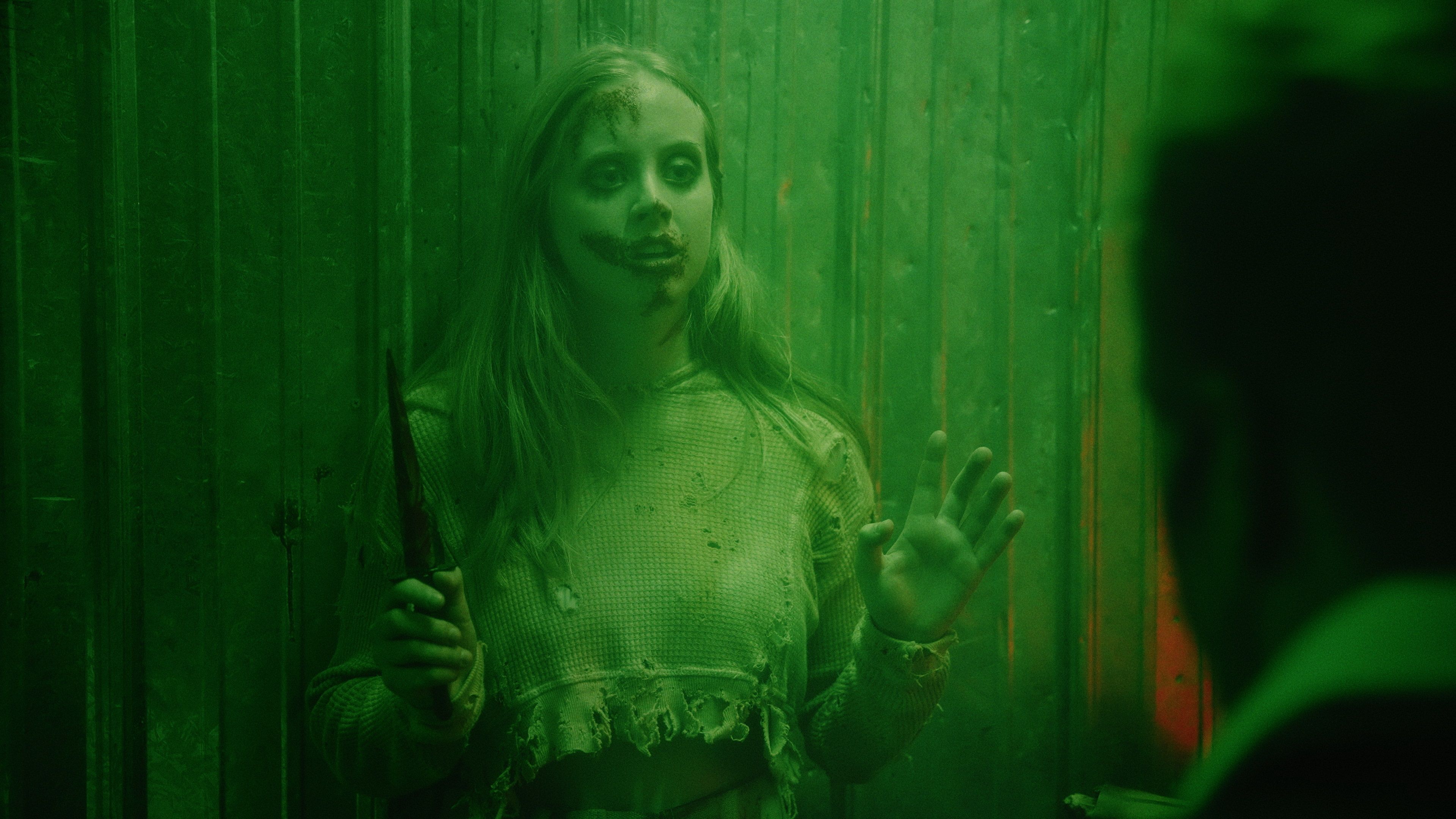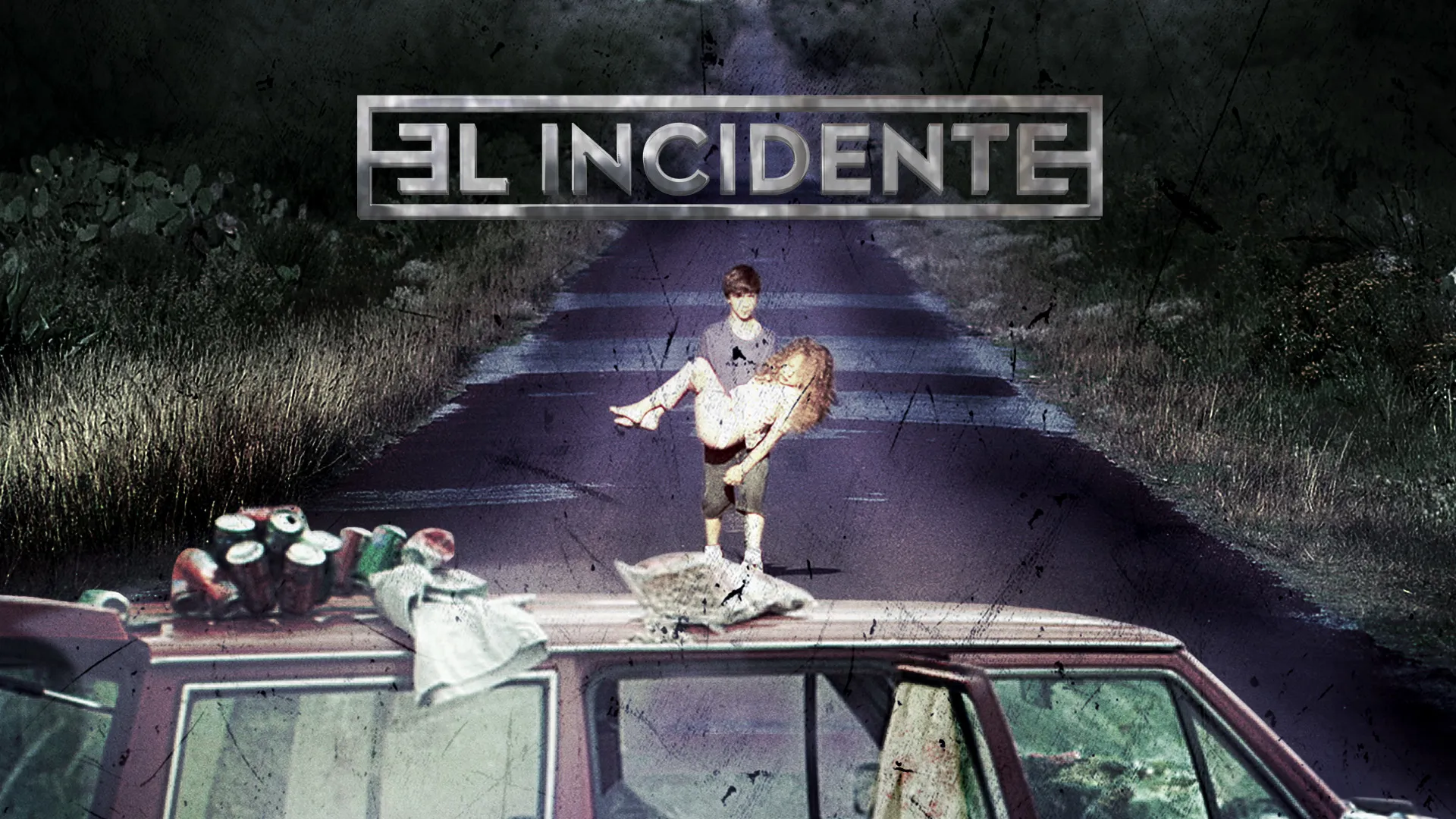In a genre overflowing with gore and recycled jump scares, Haunt Season (2024) offers something refreshingly grounded: a horror film that’s more interested in its characters than its kills—yet still delivers a fair dose of blood-splattered dread. Written and directed by Jake Jarvi, this low-budget indie blends slasher tropes with behind-the-scenes realism, turning the seasonal Halloween haunt industry into fertile ground for fear, tension, and unexpected emotion.
What could easily have been a shallow gimmick—“killer stalks workers inside a haunted house”—instead blooms into a surprisingly thoughtful thriller about ambition, trauma, and the blurred lines between real horror and fake.
Haunt Season takes place at a popular seasonal attraction in suburban America. It’s the kind of Halloween haunt where scare actors scream from fog machines, chainsaw-wielding maniacs jump from behind curtains, and visitors laugh off their adrenaline. But this year, someone isn’t playing pretend.
The film opens on the final week of the haunt’s run. Workers are tired, overworked, and getting careless. Security is lax. Visitors are rowdier. And when one of the actors disappears—only to be found brutally murdered inside one of the prop coffins—panic starts to creep in. At first, it’s shrugged off as a sick joke. But as bodies pile up, it becomes clear: there’s a real killer among them.
Where most horror films reduce characters to clichés, Haunt Season aims for depth. The story centers on Matilda, a struggling actor in her twenties who took the haunt gig out of desperation. Matilda isn’t your typical scream queen—she’s thoughtful, introverted, and exhausted from the effort of pretending. Over the course of the film, her fear shifts from a masked killer to something more existential: the fear that this, this haunted maze and plastic blood, might be all she’s ever known.
Her coworkers are equally layered. There’s Riley, the energetic veteran who sees scaring people as performance art. Josh, a former military man who finds the haunted house oddly comforting. And Cass, Matilda’s estranged friend, who returned to the job for reasons she’s reluctant to share.
Together, they form a believable, often funny ensemble. Their camaraderie feels earned, and their fears—romantic, financial, personal—are given space to matter. When the violence finally does erupt, it hits harder because we care who gets hurt.
Make no mistake: this is still a horror film, and it doesn’t skimp on the brutality. The killer’s weapon of choice is practical—knives, hatchets, even props turned deadly. The kills are bloody but not excessive. What’s more impressive than the gore is the tension. The film excels at atmosphere: dimly lit hallways, flickering strobe lights, distant screams that might be fake—or not.
The scariest moments aren’t necessarily the murders, but the quiet seconds before them. A door creaks where it shouldn’t. A prop doll turns its head. A scare actor doesn’t get back up. That liminal space between pretend and real becomes the film’s sharpest edge.
Beyond its slasher surface, Haunt Season is a film about identity. These characters put on masks every night—for their jobs, for each other, and for themselves. The haunted house becomes a metaphor: a place where everyone plays a role, and no one is safe when the lights go out.
The film also explores what it means to live on the edge of society. These are gig workers, part-time performers, college dropouts, and burnouts. The haunt is their world, and when that world is attacked, their fragile sense of control unravels.
For Matilda, the journey becomes internal. Faced with a threat she can’t rationalize or escape, she must confront not just her mortality but her stagnation. In the end, survival isn’t just physical—it’s psychological.
Haunt Season won’t reinvent the horror genre, but it doesn’t try to. Instead, it quietly refines it. By investing in its characters and committing to a strong sense of place, it turns a simple concept into a compelling and genuinely eerie experience.
With strong performances, unsettling visuals, and just enough blood to satisfy the slasher crowd, Haunt Season is a standout indie horror film. It’s the kind of story that sticks with you—not just because of what you saw, but because of what it made you feel.It reminds us that real fear isn’t always a man in a mask. Sometimes, it’s what’s behind the curtain.






